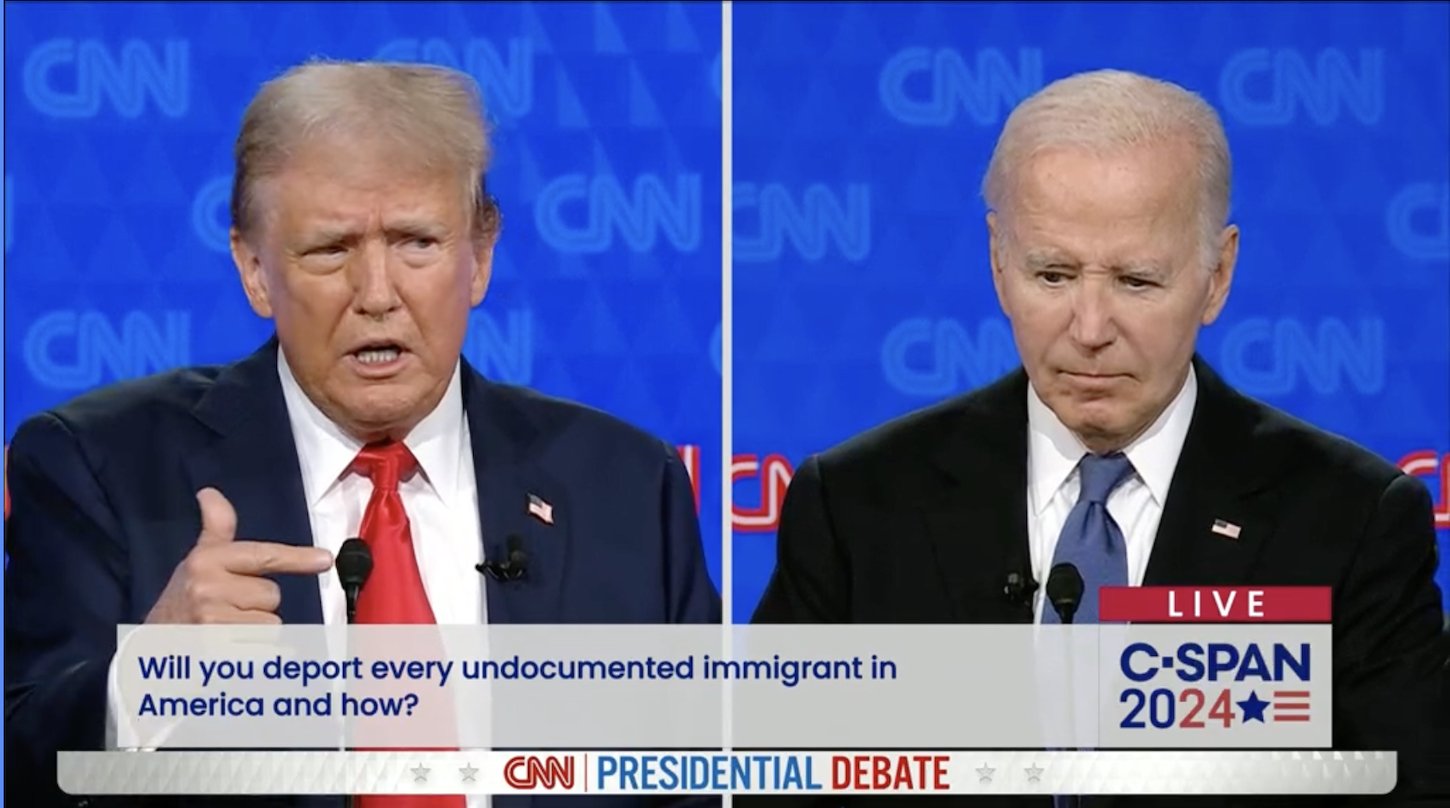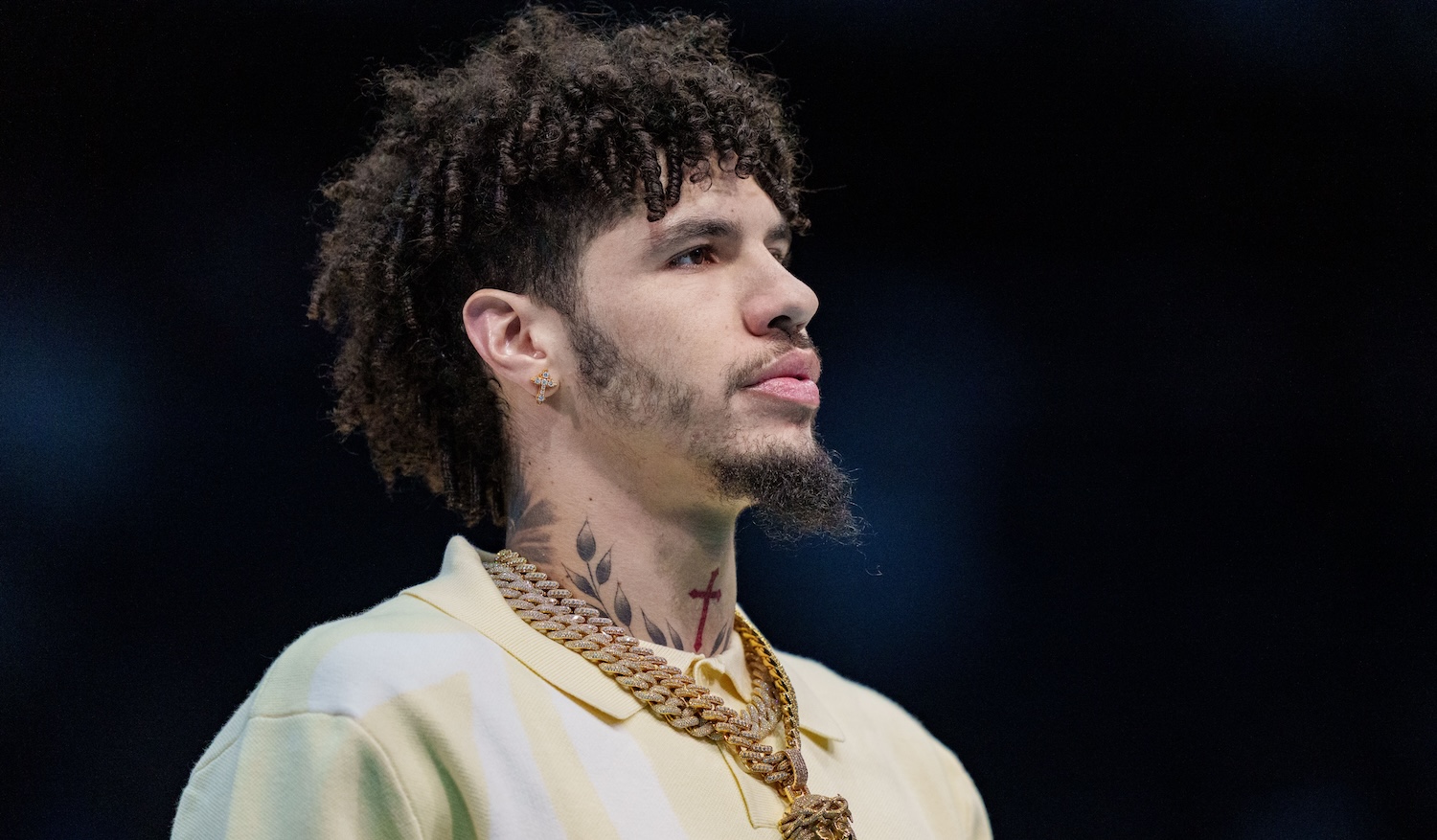Welcome to Margin of Error, a politics column from Tom Scocca, editor of the Indignity newsletter, examining the apocalyptic politics and coverage of Campaign 2024.
On Wednesday, the Bolivian army general Juan José Zúñiga sent troops and an armored vehicle to attack the country's presidential palace, in an attempt to overthrow the elected government of President Luis Arce. By Wednesday night, the coup forces had been routed and the general was under arrest.
On Thursday, Donald Trump was in a CNN studio in Atlanta, having a presidential debate against Joe Biden. Three and a half years after he sent a mob to attack the Capitol, trying to stop Congress from certifying Biden's victory, he was welcomed to the stage as the presumptive Republican presidential nominee, one of two equal participants in the democratic process.
Here was the penalty for trying to overthrow the United States government: The first question from the moderators was a challenge to Biden, asking the sitting president to defend his performance on the consumer economy. "Inflation has slowed, but prices remain high," CNN's Jake Tapper said.
And then, after a rushed yet tentative answer from Biden—"I come from Scranton, Pennsylvania, I come of household where the kitchen table if the, things weren't able to be met during the month, it was a problem"—it was time for Donald Trump to talk to the nation on television once more, the way he used to. Or not quite the way he used to; his answer started in a familiar key, with "We had the greatest economy in the history of our country, we have never done so well" but then drifted by the end into saying something about "bounce-back jobs"—the first, relatively mild note in what would be a cacophony of grievance jargon.
Donald Trump was never a reassuring or unifying speaker, but in his years as a loser, surrounded only by cronies and speaking only to superfans, his basic sense of how to perform for normal people seems to have deserted him. His theatrical, bullying bravado has given way to something pinched and angry; his flow of loosely connected not-quite-sentences is now a piling up of jagged fragments. He called Biden "Brandon" and talked about the "Unselect Committee" and the "Green New Scam," delivering MAGA insider gags as if they were recognizable zingers.
And, all too tellingly, he circled back to argue with Biden about whether he had called dead soldiers from World War I "losers" and "suckers" on a European tour during his term. When Trump first ran, the kind of people who would never have voted for Trump liked to ask what era of greatness, specifically, Make America Great Again was supposed to refer to. In 2024, there's an answer: He's running to Make America 2018 Again. The promise of Trump 2024 is that Donald Trump will never go away; there'll just be more and more of him forever.
On the left-hand side of the debate screen was a steady reminder of just how horrible that promise would be. Polls keep showing the public polishing up the Trump era in the collective memory, after nearly a full term of all-media messaging about how terrible Joe Biden's economy is—or how terrible people think the economy is—and how crime and migrant caravans are coming over the horizon. But it's hard to imagine that abstract nostalgia surviving the return of the actual Trump to everyday TV, in large doses. Most people loathed and dreaded him before, and he hasn't improved.
But then there was the right-hand side of the screen. What is there to say about Biden? He can't talk. People spinning in his defense put out the word mid-debate that he had a cold, and that certainly seemed to be true. Right at the beginning, he looked as if he was afraid of coughing—as if he was so focused on trying not to cough that he couldn't project his voice or establish any kind of stage presence. And his coping devices for dealing with his now-famous lifetime stutter continued to fail him, leaving him to freeze up or trail off where his younger self would have steered around a trouble spot.
It's not fair to hold that against him; unfortunately, Biden's not in a fair contest. When his stutter did break through, leading him to tangle up his remarks about border policy, Trump responded, "I really don't know what he said at the end of that sentence. I don't think he knows what he said either."
It's believable that Biden's mind is still sharp, as White House insiders swear to the press that it is. His administration is running reasonably well at most things except communications. His debate answers, as transcript text, read much, much better than his opponent's did. But he demonstrated to millions of people that he can't be counted on to speak in public with confidence anymore. And speaking in public is a big part of the president's job, and an even bigger part of a presidential candidate's job.
Now what? Liberal or Democratic-identified pundits panicked. At the New York Times opinion desk, Nicholas Kristof instantly demanded that Biden drop out of the race, and Thomas Friedman swiftly followed ("I watched the Biden-Trump debate alone in a Lisbon hotel room, and it made me weep"). It was like seeing the consensus for invading Iraq crystallize in the space of four hours: supposedly serious people using stentorian tones to share a snap groupthink response to what they just saw on TV.
The notion of Biden dropping out of the race remains what it always has been: a fantasy scenario that would create a truly desperate crisis for the Democratic Party, and which seems designed to send under-engaged voters the message that Donald Trump is essentially running unopposed. And why would Biden agree to quit? He had a cold. He knows what he meant to say when he fought through 10 seconds of freezes and false starts to come out with "We finally beat Medicare." He is the president. He defeated Donald Trump.
The freakout about Biden's performance was built on a paradox: What made his weak showing so appalling was that the other candidate on the stage was so obviously worse. Trump was a seething, jabbering fool; he lied reflexively and ridiculously; he couldn't or wouldn't absorb the meaning of the moderators' questions, ignoring their topics to litigate old grudges or repeat his earlier rants about his opponent or spill more MAGA esoterica. Asked about one of his own new, bold campaign promises, his pledge to deport the country's millions of undocumented immigrants en masse, he waved off the question to brag about killing Abu Bakr al-Baghdadi and Qasem Soleimani. Asked what he would do about the opioid epidemic, he started talking about how Biden is "paid by China" and is "the Manchurian Candidate."
None of that harmed Trump with the professional debate-judgers. Every columnist in the Times' insta-reaction survey scored Trump as the winner of the debate, save Jamelle Bouie, who accurately declared that neither candidate won. Journalistic manners and the norms of political coverage require that because the centrists and liberals in the media are all hoping for Biden to win the election, they have to make a show of rooting against Biden, and Trump gets left out of their evaluative frameworks altogether.
In a slightly less broken and defective country—in a country that valued democracy and the rule of law as much as Bolivia or Brazil does—Donald Trump would not be threatening to win back the presidency, because Donald Trump would be in prison and barred from office. But Trump is not in prison, and the various parts of the federal government that might have sent him there turned out to be too feckless or corrupt to do it. The press has welcomed him back; Tapper and his co-host Dana Bash let him lie without follow-up or objection, and let more than half the debate go by before even halfheartedly trying to get him to answer their questions. They did try to get him to say that he'd accept this election result, but did nothing when he began rambling about how much fraud there was in 2020.
So Joe Biden is, by default, the only person in a position to stop Donald Trump. The Trump on the debate stage looked eminently stoppable. Yet Biden seemed helpless to do it. Given a question about Trump's Supreme Court picks overturning Roe v. Wade, Biden stumbled away from abortion rights—the Democrats' most powerful political issue—to start talking about Trump's favorite topic, a young woman "murdered by an immigrant." When Trump, answering a question about age, veered from bragging about his scores on cognitive tests to babbling about his golf performance, Biden started arguing with him about golf. There must be 50 million people in America who could have handled that moment better. But none of them are going to be on the ballot.






